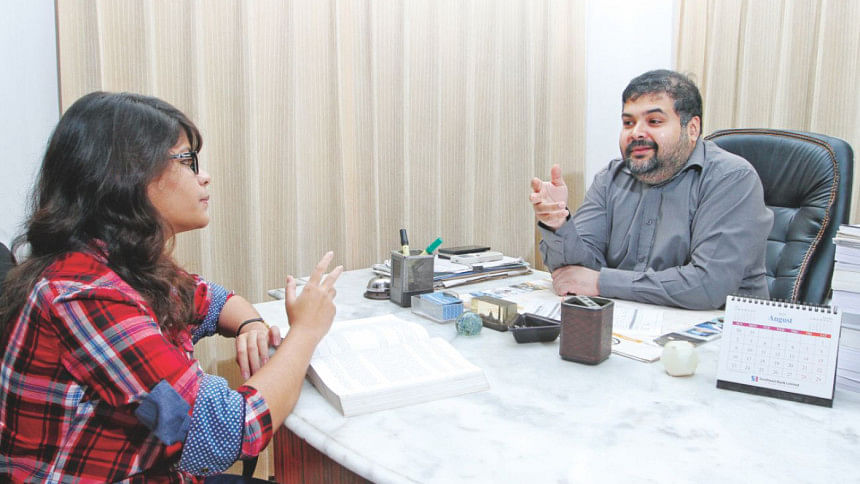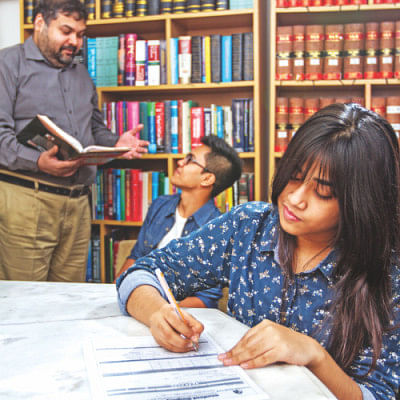GET THAT SCHOLARSHIP

For the thrill of exploring uncharted waters or for the intellectual and personal challenges involved, studying overseas is a hope many of us nurture; but the extortionate international tuition fees can prove an enormous hurdle. So what should we keep in mind when applying for financial aid?
STICKS AND STONES MAY BREAK MY BONES BUT AUNTIE'S WORDS WILL KILL ME.
Securing a substantial international scholarship for an undergraduate programme is not an easy task by any standards. International students aren't entitled to most of the financial aid packages and the healthy scholarship funds that universities like to gloat about are reserved for domestic candidates. There is funding specifically tailored for international students but most of it is for postgraduate programmes. Scholarships for international undergraduate students rarely amount to much more than a small fraction of the tuition. This is especially true for universities in North America.

Postgraduate programmes are shorter and consequently cheaper and a lot of them are research-based which the host country can benefit from; this would explain why funding is more readily available for them. However, many of the Ivy League universities in the USA implement a needs-blind system where they provide financial assistance to you once you get admitted regardless of your citizenship status, your programme of choice or financial capability. But with their acceptance rates barely pushing 1%, it is not something you can rely on.
We approached some universities overseas and here's what they had to say:
"The financial support available for overseas undergraduate students is limited. Few full scholarships are available at undergraduate level; most support a partial contribution to your overall costs and is means-tested," said Tracy from the University of Cambridge Admissions Office.
"The value of the scholarships is rarely sufficient to cover all costs the student will incur while attending University of Toronto. Students must ensure that they can arrange sufficient funds to meet their educational and living costs," reiterated a representative from the University of Toronto.

Although this establishes the difficulty of obtaining a scholarship, one should note that it is still possible with the right grades and ECA record. So the next time an auntie boasts about one of her nieces getting a "full" scholarship while you struggle to secure a single penny, don't let it deter you. Chances are her niece is a citizen of that country and reaps the associated benefits, or she's pursuing a postgraduate degree. Although explaining that to the auntie is an entirely different hurdle you might not be ready for (ever).
SO MANY AVENUES FOR REJECTION.
Whether its subject related, merit or needs based, most universities have a quota of financial aids available for international students. Financial aids come in various forms. Bursaries, scholarships, grants and other awards are doled out by universities as well as charities, educational trusts and other such foundations. While student loans do count as financial aid, being burdened with debt for half of your life isn't exactly ideal. The following are the most common funding sources that don't require repayment.
Scholarships are almost always merit-based. Academic, extracurricular or athletic excellence and even the creative potential a university sees in your application essay may get you a scholarship. There are scholarships you're considered for automatically once you've submitted your college application, and then there are scholarships that require applications of their own. Apply as early as possible, as any substantial scholarship will attract strong competition and have rigid deadlines.
Bursaries are dependent on financial circumstances; factors such as ethnicity and physical disabilities are also taken into account. Universities avail bursaries for students from low-income families. Providing sufficient information and documentation of your funds increases chances of securing a bursary. It is crucial to demonstrate a genuine need for financial assistance in your personal statement, using your gender or nationality (e.g. living in a commonwealth country) to your favour can also prove to be effective.

Grants are merit as well as needs based. From flight tickets to living costs, there are grants specifically tailored to finance all kinds of expenses. While foreign citizens are not prioritised overseas, there are many corporations in Bangladesh that are offering grants to students who want to study abroad. For example, The American Alumni Association offers a grant that covers all air travel expenses to the US for Bangladeshi students. There's an abundance of similar opportunities waiting to be discovered.
Note that it is possible to lose a scholarship if you no longer meet its requirements, e.g. failing to maintain good grades. Similarly, bursaries/grants can also be discontinued if your financial circumstance change for the better and you become capable of affording tuition without assistance.

PLANNING AND PREPARATION IS THE NAME OF THE GAME.
When applying for scholarships, foresight will serve you well. Aside from the financial assistance the university offers, there are also a plethora of third-party awards you can apply for. The university website usually provides information most of the time but some information might be more hidden throughout the intricate tapestry that is the web. The country where you're applying may prove a pivotal factor – most universities in the US are known to pay special attention to your ECA record while their counterparts in the UK are willing to overlook them for academic proficiency.
Spend ample time on obtaining the right recommendation letters, the right ECA record and researching every avenue you can find. To put things into perspective: it is not uncommon for successful Ivy League applicants to have started preparing for their applications in the 5th grade.

A LOVE LETTER TO THE AWARDS OFFICE
The process of applying for colleges abroad can be confusing, hectic and even a little scary. International students must follow the same procedures other students follow, but it is definitely a tougher task for those living halfway across the globe. If your only hope of attending the college you (or your parents) have been dreaming of is to win a scholarship then it is vital that you submit a stellar application.
Each scholarship may seek one particular attribute, such as social activism, leadership, entrepreneurship etc. It is important to tailor your application to cater to the requirements of the award. One should also spend a sufficient amount of time on the personal statement most awards require. You will use that to tie all your achievements and qualities together and create a portrait of your personality. Make sure it conveys your individuality.

Amongst transcripts, recommendations and all the other documents you will have to submit, your personal statement is where you get to speak for yourself. Make it count.
Rasim Alam is one of the few to have received the coveted 'full ride' (exempt from paying tuition) to Tufts University for his double major programme in Economics and International Relations. When asked to provide advice for hopeful aid applicants, he had this to say:
"It's important to think of the application as a whole package and try to create as clear a picture of yourself as possible. Hopefully, if the college is a good fit, it'll accept you. Maintaining a certain standard in academics won't it get you in but it'll definitely help you make the cut. Top universities get excellent applications with remarkable results so you need to stand out without your grades. For that purpose, I can't stress enough how important the essays are. Use them to try to showcase your personality more than your skills and achievements. Also, if there is an opportunity to send a portfolio/art/music/video, DEFINITELY DO IT; it adds a very necessary personal touch."
Special thanks to Mr. Bagmar, Director, Overseas Study Link. For more info, visit www.facebook.com/oslnk or call 01716350847.

 For all latest news, follow The Daily Star's Google News channel.
For all latest news, follow The Daily Star's Google News channel. 



Comments